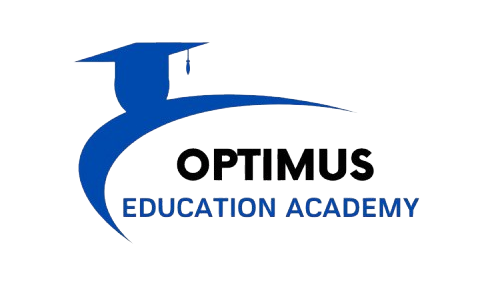BSc (Hons) Computing
The BSc (Hons) Computing program provides a comprehensive and adaptable undergraduate experience, equipping you with the skills and knowledge to thrive in the ever-evolving field of computing. With personalized support, expert guidance, and access to cutting-edge IT resources, you will gain industry insights and develop expertise in various specializations.
Whether you’re interested in software development, cybersecurity, data science, or IT management, this program empowers you to shape your own path and pursue a career in the rapidly growing tech sector.

Course Overview
The BSc (Hons) Computing program offers exceptional flexibility, integrating key elements from various study pathways to create a comprehensive, industry-informed curriculum. You will develop a strong foundation in computing and IT principles while studying in a supportive, multicultural environment.
As you progress, you can tailor your learning to align with your interests and career goals, exploring areas such as machine learning, artificial intelligence, or cybersecurity. Small class sizes ensure personalized interaction with dedicated lecturers, many of whom are active researchers with extensive industry experience. Guest speakers further enrich the learning experience by providing up-to-date insights from the field.
Strong connections with businesses enable you to work on live project briefs, allowing you to apply your skills in real-world scenarios. The program also emphasizes lifelong learning, equipping you with the mindset to continuously develop your expertise.
Well-equipped IT suites provide the tools and resources needed to enhance your learning both individually and in collaborative settings, with expert support available throughout your studies.
Intakes
27/01/2025
Duration
3 years
Mode of Study
Full-time
Awarded Degree
BSc (Hons) Computing
UCAS Points
96
UCAS Code
G400
Fees
TBA
- Entry Requirements
- Modules
- Key Features
- Teaching & Assessment
- Employability
- Tuition Fees & Financial Support
To enroll in the BSc (Hons) Computing program, you need a minimum of 96 UCAS points, which can be obtained through various qualifications, including A-levels, BTECs, and T-levels. While subjects in science, technology, engineering, mathematics (STEM), or computing are preferred, applicants from all academic backgrounds are welcome.
In addition, you must have five GCSEs at grade C or above (or grade 4 to 9), including English and Mathematics. If you do not meet the standard entry requirements but have non-traditional qualifications or relevant experience, we encourage you to apply. A diagnostic mathematics test and an interview may be required as part of the assessment process.
For non-native English speakers, an IELTS score of 6.0 with no component below 5.5 (or an equivalent qualification) is required. A range of other English language qualifications is also accepted—please refer to our English Language Requirements page for further details.
If you do not meet the entry requirements, you may consider applying for the BSc (Hons) Computing with Foundation Year. We will keep you informed of any updates regarding course information or admissions requirements.
Modules may include both compulsory and optional components, and not all may be available to every student. Possible modules include:
– Maths for Computing
– Computer Science Fundamentals
– Computing Infrastructure
– Databases
– Object-Oriented Programming
– Systems Analysis and Design
– Cloud Technologies
– Advanced Databases and Big Data
– Advanced Operating Systems
– Introduction to AI
– Research and Professional Issues
– Undergraduate Project
– Natural Language Processing
– Information Security Management
– Operations Management
– Applied Machine Learning
– Software Quality Management
– Emerging Technologies
Highlights
– Our Computer Science courses rank 4th in the UK for student satisfaction (The Complete University Guide 2025).
– We are among the top 5 universities for teaching quality (The Times and The Sunday Times Good University Guide 2024).
– Gain expertise in high-demand areas such as machine learning, data science, cloud technologies, artificial intelligence, natural language processing, and cyber security.
– Study in a thriving digital hub with extensive networking opportunities, including guest lectures from industry professionals.
– Our strong focus on employability and industry connections enhances your career prospects.
By aligning modules and projects with industry standards, we equip you with the skills employers seek. You’ll gain hands-on experience with various programming languages and development approaches, broadening your career opportunities.
Key Features
– Small class sizes allow for personalized support and meaningful interaction with experienced lecturers.
– A regularly updated curriculum ensures you stay ahead of emerging trends in computing and technology.
– Access state-of-the-art laboratories, high-performance servers, and industry-standard software for practical learning.
– Many resources and facilities are available online, giving you the flexibility to work on assignments anytime, anywhere.
– Develop a strong portfolio showcasing your skills across multiple platforms, enhancing your employability.
Beyond academics, you’ll experience a vibrant local community with shops, restaurants, and leisure facilities, while nearby Manchester offers a dynamic cultural scene and stunning countryside in the Northwest.
Assessments for each module are generally weighted to a total of 4,000 words or equivalent. For example, you might have two assessments: one could be a presentation worth 1,200 words, while the other might be a written assignment totaling 2,800 words.
The program features a blend of lectures, practical lab sessions, and tutorials. Lectures introduce core content, while labs provide hands-on experience. Tutorials allow for personalized discussion on course material. Case studies and practical scenarios help bridge theory and practice.
Small class sizes enable tailored support for your learning preferences and ambitions. Assessments include practical demonstrations, reports, and coursework, contributing to your final marks. Formative assessments throughout the program help you identify strengths and areas for improvement.
The teaching style incorporates both in-person and online elements as appropriate.
Level 1: Coursework 100%
Level 2: Coursework 100%
Level 3: Coursework 90%, Practical exams 10%
Learning Activities
Level 1: Guided independent study 66%, Scheduled learning and teaching activities 34%
Level 2: Guided independent study 77%, Scheduled learning and teaching activities 23%
Level 3: Guided independent study 77%, Scheduled learning and teaching activities 23%
Assessments for each module are generally weighted to a total of 4,000 words or equivalent. For example, you might have two assessments: one could be a presentation worth 1,200 words, while the other might be a written assignment totaling 2,800 words.
Career Opportunities
As computing technologies become increasingly integral to daily life, graduates of this program are highly sought after across various industries. The BSc (Hons) Computing degree provides a balanced mix of theoretical knowledge and hands-on experience, covering essential skills in programming, systems design, databases, web development, and networking. Additionally, you’ll develop critical soft skills such as communication, leadership, and problem-solving—qualities that employers highly value.
Graduates can pursue careers in diverse fields, including network design, programming, web development, IT support, consultancy, e-commerce, and business analysis. Potential employers range from IT consultancies and telecommunications companies to the aerospace, healthcare, and public sectors. Many graduates also establish their own ventures in areas such as web design and IT consultancy.
For those interested in further education, opportunities include pursuing a master’s degree or PhD in specialized areas like networks, security, or software engineering. Graduates may also choose to enter teaching, sharing their expertise with the next generation of computing professionals.
Alternative Career Paths
The degree also provides a strong foundation for careers in:
– Digital copywriting
– IT sales
– IT training
– Teaching
– Research and development
– Network engineering
– Product management
– Technical writing
– Social media management
– Cyber security
– Information systems management
– Games development
This program equips you with the skills and adaptability needed to thrive in a rapidly evolving digital landscape.
For more information about course fees, please click here or call us at
